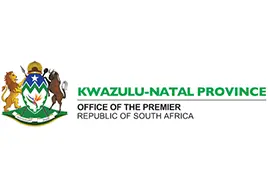
AEDS team led by Dr Nelson Chanza conducted a comprehensive feasibility study as a Food Security and Livelihoods Specialist engaged by…
AEDS team led by Dr Nelson Chanza undertook a Community-based Climate Vulnerability and Capacity Assessment (CVCA) implemented for Mercy Corps…
AEDS team led by Dr Nelson Chanza provided technical support to the development of the Climate Change and Biodiversity Strategy…
AEDS’ team led by Dr Nelson Chanza worked as part of a multidisciplinary team of researchers under the Environmental Management…
Zimbabwe Youth Program Collaborative Action Network for the Youth Empowerment and Transformation Trust (YETT) The AEDS team led by Prof…
Despite economic growth in parts of Africa since the new millennium, the gap between the rich and the poor remains…
As part of the pilot, the programme was launched on 07 May 2021 in Chimanimani (Nyanyadzi and Cashel Valley). As…
The PALP project is a multi-million rand agribusiness project estimated at R45 million which will be established on a 10.6…
The United Nations since the beginning of the new millennium has been championing universal access to health, education, poverty eradication…


